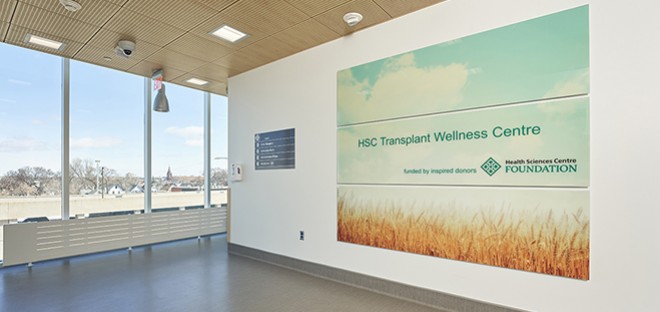Frequently Asked Questions
-
Frequently Asked Questions about organ donation
- Can donor families learn about or meet the recipients?
- Does my age, pre-existing medical condition or sexual orientation prevent me from being a donor?
- How do you know if organs are suitable to donate?
- How long will the donation process take?
- How old do I have to be to register my intent to be an organ donor?
- If I have indicated my intent to be an organ donor, will medical staff still do everything possible to save my life?
- What does it mean to consent to donate organs for medical education or scientific research?
- What impact does organ donation have on funeral plans?
- What is involved in the donation process?
- What organs can be donated?
- When does organ donation become an option?
- Why should I donate my organs?
- Will my family be asked about my intent to donate?
- Frequently Asked Questions about living kidney donation
Frequently Asked Questions about organ donation
Browse the list of questions below, or contact Transplant Manitoba directly for more information on organ donation.
- Can donor families learn about or meet the recipients?
-
There are complex emotional, psychological and physical issues with receiving an organ transplant. All recipients are incredibly grateful for the gift they have received but their autonomy must also be respected. The pressures to live up to the organ donor family’s expectations may be difficult to bear at any time in the transplant process and the burden of this may leave organ recipients with conflicted emotions including guilt. The person who receives the organ transplant is a unique person who may be very different from the organ donor. In order to protect and respect organ donor families and organ recipients all organ transplant programs within Canada continue to provide an anonymous donation process.
- Does my age, pre-existing medical condition or sexual orientation prevent me from being a donor?
-
Everyone can be a donor regardless of age, medical condition or sexual orientation. Your decision to register should not be based on whether you think you would be eligible or not. A donor's eligibility is determined by the health care team upon their death.
- How do you know if organs are suitable to donate?
-
The health of the organs of a potential donor are all evaluated by medical professionals and held to Health Canada standards. The suitability of an organ is not certain until the doctor sees it in the procurement surgery.
- How long will the donation process take?
-
Times will vary depending on each case, but once consent has been obtained and the person has been cleared to be a donor, the process can take between 24 and 36 hours to complete.
- How old do I have to be to register my intent to be an organ donor?
-
If you are under the age of 18 you must have a parent co-sign your donor card or register you on signupforlife.ca.
- If I have indicated my intent to be an organ donor, will medical staff still do everything possible to save my life?
-
The first and foremost concern for healthcare professionals caring for critically ill patients is to do everything possible to save lives. The possibility of donation is only considered when all lifesaving efforts have failed. The health care professional teams responsible for supporting donation are separate and independent from the health care professional teams responsible for transplantation.
- What does it mean to consent to donate organs for medical education or scientific research?
-
Persons wishing to donate their bodies to science should contact the University of Manitoba Department of Anatomy by phone at 789-3652 for more information on making these arrangements. You may also visit their website.
- What impact does organ donation have on funeral plans?
-
Funeral arrangements are not affected by organ donation. Organ donations will happen quickly after you die. You will be able to have an open casket funeral. Your body will appear as if you had undergone normal surgery. You will be clothed for the funeral, so stitches won't be visible.
- What is involved in the donation process?
-
Organ donors must be declared legally brain dead by two physicians while in the Intensive Care Unit of a hospital and on a ventilator that keeps their organs functioning artificially for a limited time. The family of the potential donor will be asked to give their consent to donation on the patient's behalf. If consent is given, the family will be asked to answer a medical questionaire on the patient to help determine the patient's eligibility to donate.
Once the person has been cleared to be a donor, arrangements will be made with the appropriate retrieval teams from across the country who will fly in to retrieve the organs and transport them back to their transplant centres. The surgery is performed with the same respect and care for the body as if it were a live person.
- What organs can be donated?
-
You can donate your kidneys, liver, heart, lungs, pancreas and small bowel. Because you have two kidneys and lungs and the liver can be divided up amongst two recipients, one donor can save the lives of six people or more.
- When does organ donation become an option?
-
Most organ donors suffer a stroke or bleeding in the brain or have an accident or head trauma that causes the brain death. When a person in hospital is declared brain dead, or is progressing toward brain death, the intensive care medical team will raise the possibility of donation with the family. Sometimes the family brings up the topic of donation themselves.
If the family is interested, a member of the Transplant Manitoba – Gift of Life team will come to speak with them. The family is given time to make a decision. If they agree to donation, there is some paperwork to confirm the donation and which organs may be retrieved.
- Why should I donate my organs?
-
There are hundreds of Manitobans and thousands of Canadians on waitlists for kidney, lung, liver, heart and pancreas transplants. With not enough people donating to meet the demand, many die waiting.
- Will my family be asked about my intent to donate?
-
If you become a candidate for organ donation, Transplant Manitoba – Gift of Life will ask your next of kin to give their consent to donation on your behalf.
Once in hospital, there is usually no chance to discuss donation with the potential donor, which leaves the decision to the family. It is much easier for the family to make the decision if they know the wishes of their loved one before hand.
Frequently Asked Questions about living kidney donation
Browse the list of questions below or contact Transplant Manitoba's Living Donor Coordinators at 204-787-2323 or livingkidneydonation@hsc.mb.ca for more information.
- Can I live a normal life after donating a kidney?
-
A person can lead an active, normal life with only one kidney. Studies have shown that one kidney is sufficient to keep the body healthy. After recovering from surgery, a donor can return to doing all the things they used to -- work, drive, exercise and participate in sports (contact sports are not recommended, however). Also, being a donor does not impact a person’s ability to have a child.
- What are the health risks associated with being a donor?
-
Your surgeon and the donor coordinator will discuss all health risks with you. The risks of donation are similar to those involved with any major surgery, such as bleeding and infection. Death resulting from kidney donation is extremely rare. Current research indicates that kidney donation does not change life expectancy or increase a person’s risks of developing kidney disease or other health problems.
- What is the first step to becoming a living donor?
-
If you are interested in being a living donor, please contact the Living Donor Kidney Donor Coordinators at 204-787-2323 or livingkidneydonation@hsc.mb.ca to request a questionnaire.
Once the questionnaire has been completed it will be reviewed to determine if you may proceed with initial blood testing. These results are looked at first to determine if you are a potential match for a recipient. They are strictly confidential and not shared with the recipient by the donor coordinator.
- Who can be a donor?
-
Donors need to be between the ages of 18 and early 70s.They can be related to the recipient, such as a parent, child, sibling, or other relative, or unrelated such as a spouse or friend. An ideal donor should have a genuine interest in donating and a compatible blood type with the recipient.
Donors need to be in good general health. Typically, someone who has cancer, diabetes, kidney disease, heart disease, liver disease, sickle cell disease, HIV or hepatitis will not qualify to be a donor. However, every donor will be considered on an individual basis.








